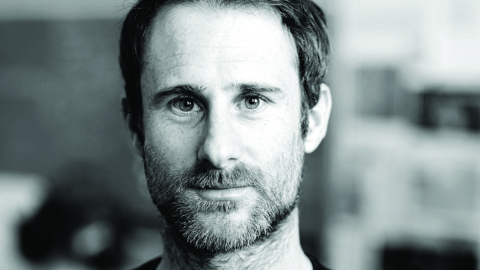Craig Silvey's novel Jasper Jones – about small-town prejudice in 1960s Western Australia – was published to great acclaim (and flattering comparisons to Harper Lee's To Kill a Mockingbird) back in 2009. Since then, the novel has taken on a life of its own. An adaptation of the novel for theatre, written by Kate Mulvany, has seen three separate theatre productions of Jasper Jones hit stages around Australia. There's a film production in the works, too – starring Toni Collette and Hugo Weaving.
We asked Silvey how it feels to let others take the Jasper Jones reigns.
Can you describe the process of working on the adaptation of the book with Kate Mulvany?
Kate and I discussed the project in depth very early in her process. She was very respectful of the source material and was interested to know which elements I considered crucial to its reframing. Fortunately, our instincts are very much aligned, so I knew from the very first meeting that the story was in the safest of hands. Kate is ridiculously talented. I made it clear that it was her adaptation, and it was important that she felt free to explore the narrative in her own terms. Regarding structure and staging, I was always happy to defer to her experience and expertise. Most consultation on my part was about character, tone and theme – since there were no significant adjustments to the arrangement of the narrative.
Were there any elements of Kate’s interpretation that surprised, horrified or delighted you?
Kate’s script is very funny, but it is delicately balanced with a truthful intensity and sincerity. It gives the production great momentum and throws the audience head-on into a really emotionally dynamic journey. That’s not easy to do. Something Kate did successfully was expand characters who don’t get the fairest hearing in the novel on account of it being Charlie’s narrative. So a character like Ruth (Charlie’s mother) becomes more rounded, since we view her from a wider lense. Kate gives her the most beautiful, heart-breaking soliloquy in the third act, which always moves me to see. It makes the story better, it really does.


This will be the third theatre production of Jasper Jones and there’s also a film production in the works. Have you struggled at any point to entrust your work to different people? What have you learned along the way?
One of the most important things I have learned as a writer is that once your novel hits the shelf, it’s not yours anymore. It’s a public object. By lending a book their time and imagination, a reader earns the right to make it their own. I’m not precious about the diversity of interpretations people bring to the book, it’s something I celebrate. So an extension of that is this remarkable opportunity to have the novel produced by three separate companies, in vastly different ways. It makes me so proud and excited, there’s no room to feel cautious.
How involved have you been in the film production and the screenplay?
I have been vastly more involved in the screen adaptation than the stage, having delivered a draft and composing the shooting script. I was also involved with pre- and post-production – things like casting, rehearsals and design. I was on set for the duration of the shoot too, so the two experiences have been very different.

Do you think the process of seeing your work transformed for the stage will change the way you approach writing novels in the future?
I wish I were that organised! But even if I were, I doubt I’d be considering adaptations before there was a narrative to adapt. Writing is about determination, focus and consistent effort. When I report to my desk every day, I’m really just trying to put one foot in front of the other, and avoiding taking too many steps backwards (to belabour a bad metaphor). But my point is: the story itself, and the characters who inhabit it, is the most important part of my process. Reception, adaptation, criticism, publication – these are all external to the art of writing, and are impossible to control.
